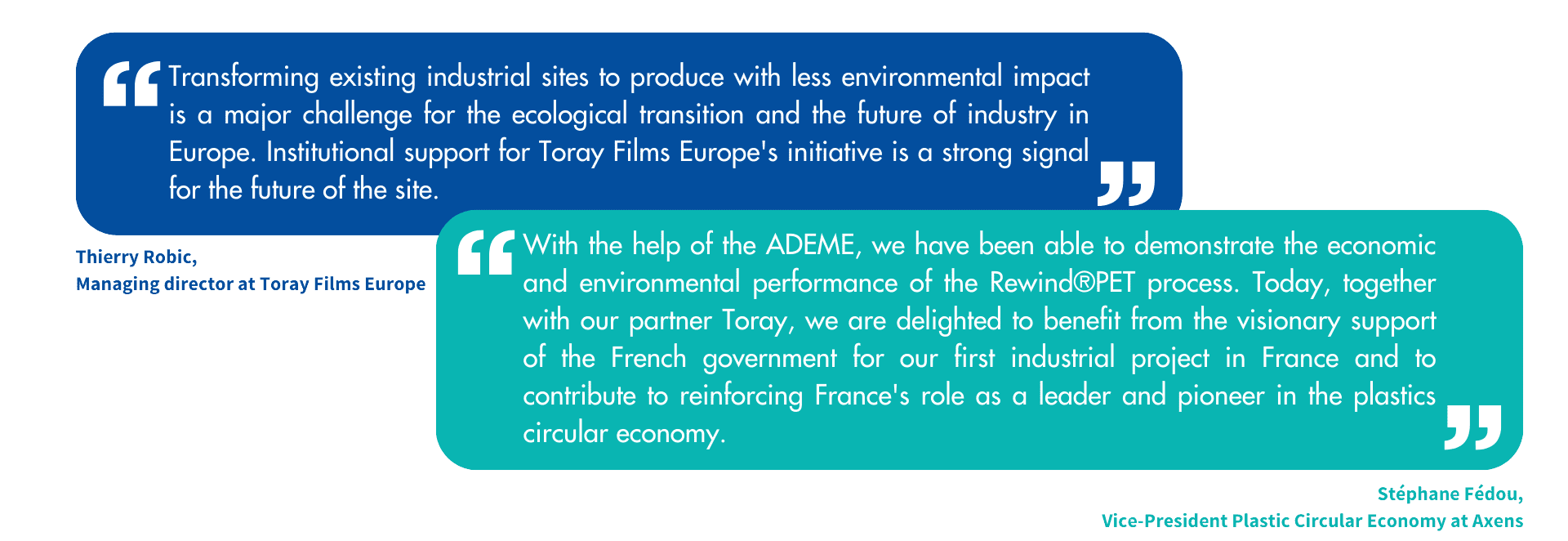French government has retained the future PET chemical recycling plant which will be built by Axens and Toray Films Europe in Saint-Maurice-de-Beynost among the France 2030 winners.

This new industrial unit will produce 30,000 tons per year of recycled PET. A project which will contribute both to French sovereignty in terms of raw materials, but also to the growth of the circular economy of plastics in France and around the world.
It will be the first plant in the world to use Rewind® PET technology, developed by IFP Energies Nouvelles, Axens and the Japanese JEPLAN with the support of ADEME.

This new technology makes it possible to recycle a large spectrum of PET plastic wastes, including those currently difficult to recover, into high-quality circular & transparent PET chips for all types of applications, including food contact. This is a major technological advance, expected by many manufacturers and brands around the world.
This public investment plan aims to support investment in projects designed to strengthen France’s technological and industrial sovereignty. The levers identified by France 2030 include securing access to raw materials and decarbonization of the industry.
The project carried out by Axens and Toray is fully aligned with these objectives and enables post-consumer waste to be recycled. The new unit foreseen by the two partners will indeed allow to produce 30 000 tons per year of chemically recycled PET from post consumers wastes that are currently not recycled in close-loop, thus reducing associated GHG emissions linked with the production of plastic, as well as the use of fossil raw materials
This new patented technology completes mechanical recycling by converting PET wastes that were previously very difficult to recycle (opaque, colored, trays, polyester textiles, etc.) into circular PET with the same quality as fossil PET, that can be used for food contact applications. This technology is eagerly awaited by manufacturers and brands, who must rapidly incorporate high levels of recycled material, under the combined pressure of consumers and legislators.
On October 27, 2023, the technology was demonstrated in Japan on an industrial demonstrator with the support of the ADEME, with positive confirmation of its performance.
The Saint-Maurice de Beynost plant will be the first in the world to use this innovative technology at an industrial level, on the current Toray Films Europe site with No Net Land Take
A project committed for circular transition, which will support French sovereignty both on the raw material side, but also to the growth of the plastic circular economy in France and in Europe.




